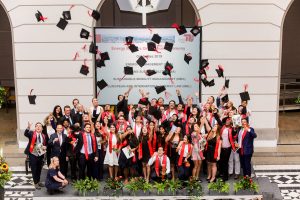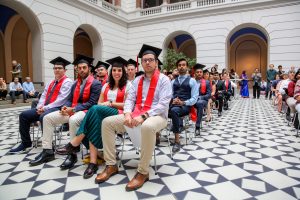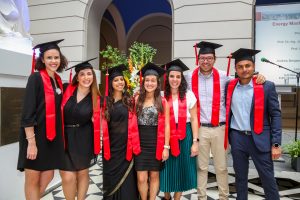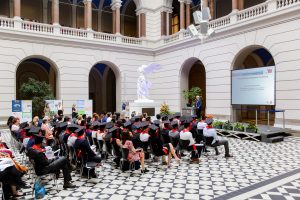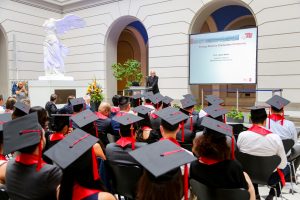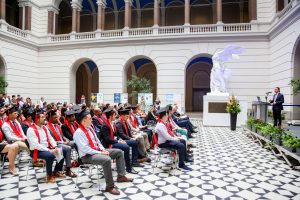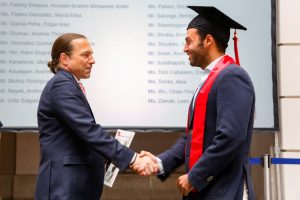
Student Guide
Application and Admission Regulations
Intake 2023_25 Syllabus_Term I
Intake 2023_25 Syllabus_Term II
General Study and Examination Regulations of Technische Universität Berlin of 9 September 2024 (German Version)
Study and Examination Regulations & Admissions and Approval Regulations, German (Valid for intakes after October 2019)
Appendix to the Study and Examination Regulations & Admissions and Approval Regulations, German (Valid for intakes after October 2019)
Study and Examination Regulations & Admissions and Approval Regulations, English (Valid for intakes after October 2019, translation, German version binding)
Appendix to the Study and Examination Regulations & Admissions and Approval Regulations, English (Valid for intakes after October 2019, translation, German version binding)
Building Sustainability is a Master’s program which is a comprehensive, interdisciplinary course for those who plan a career in real estate project planning and management with a focus on implementing sustainability and acknowledging the relevance of different urban contexts.
The concept of the German „Energiewende“ – literally, energy transition – has gained international attention. It includes a variety of measures that aim at making Europe’s largest economy free of fossil fuels and nuclear energy. In order to attain this, all areas of energy production and consumption will have to go through a transition process. Besides mobility and industry, buildings are therefore one of the key factors for a successful Energiewende.
The „Building Sustainability“ MBA program comprises skills, methods, and concepts to consider different approaches, to understand them, and to align them for reaching sustainable solutions. Such competencies are indispensable in every building, construction, and real estate project that takes energy efficiency and other sustainability criteria as balancing economic, social, ecological, and cultural aspects in responsibility for future generations into account.
In this regard, students will learn a lot from experts and from each other and hopefully enjoy the international, interdisciplinary teamwork as well as Berlin’s urban and cosmopolitan atmosphere.
Curriculum
The master program is taught over a period of three semesters. The first semester covers the technical, economic, entrepreneurial, and legal foundations for management decisions in the building sustainability sector; the second semester deepens this view through the Interdisciplinary project, Management, and the lecture series modules; the third semester broadens the view while simultaneously focusing on practice according to student’s individual interests. All semesters include lectures, tutorials, seminars as well as Excursions /presentations, online materials related to practice, and extracurricular activities. The master thesis due in the third semester concludes the program.
Program structure
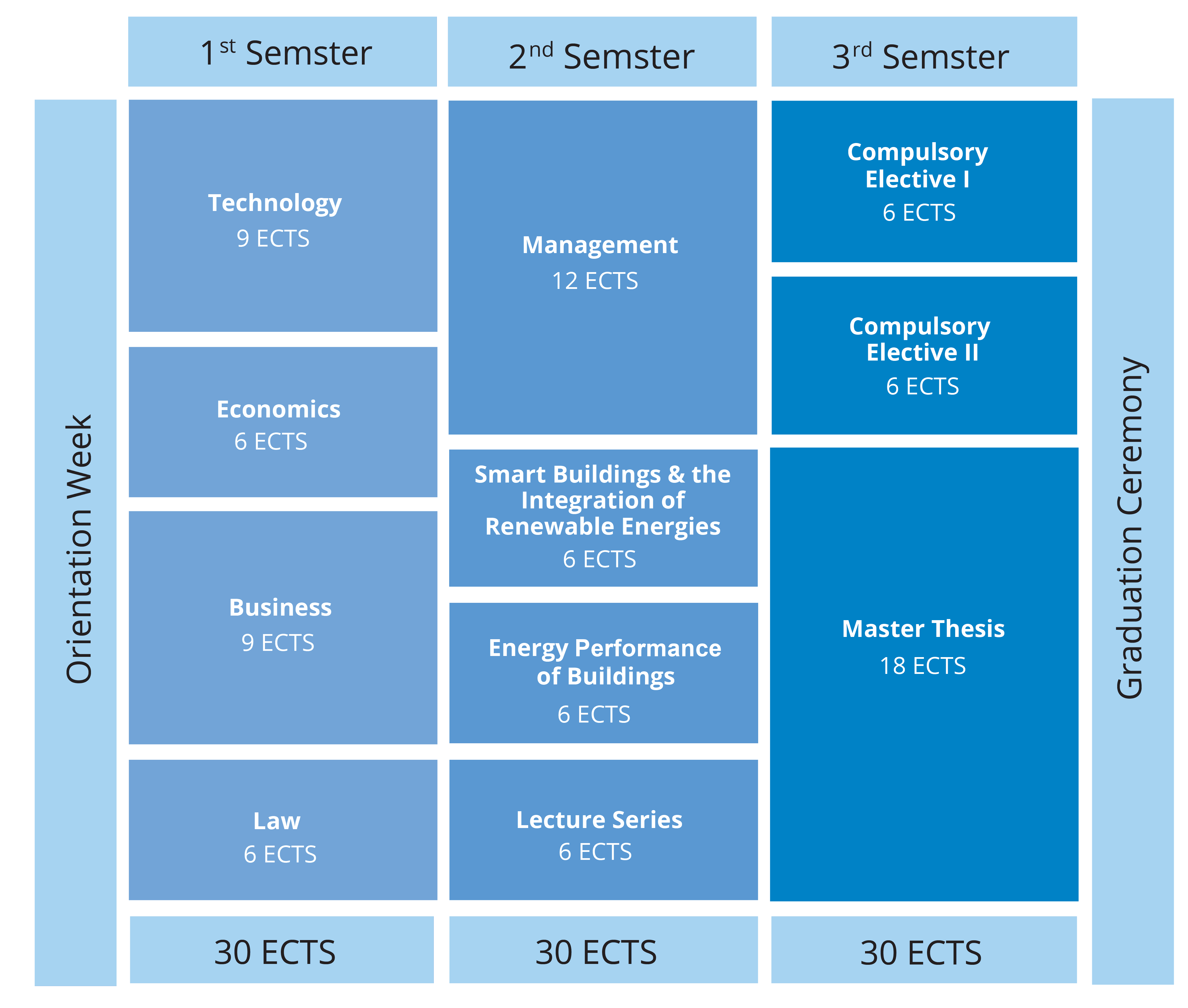
Module Description
M01 Technology (9 ECTS)
In this module, students review and gain more in-depth general technical knowledge and knowledge of energy technologies and systems in the context of current developments taking into account social responsibility and sustainable development. The module also covers the most important technological insights, and the technological foundations of the subsequent modules are explained. Students will be able to define and evaluate various procedures, apply them to selected cases in the construction sector, and present options for optimizing them.
M02 Economics (6 ECTS)
This module is an introduction to economics. It covers the most important principles of economics taking into account social responsibility and sustainable development. The module engages with the latest research and encourages a critical and reflective approach in providing a grounding in economics for subsequent modules. Students are able to employ specialized knowledge and aspects of economics and to compare general and selected cases from the construction sector.
M03 Business (9 ECTS)
This module is an introduction to business studies. It covers the most important principles of business studies taking into account, social responsibility and sustainable development. The module engages with the latest research and encourages a critical and reflective approach in providing a grounding in business studies for subsequent modules. Students will be able to define the main features of business studies, apply problem-solving skills to case studies using different fields of knowledge, and, depending on the focus of their studies, present options for optimizing the construction sector.
M04 Law (6 ECTS)
This module is an introduction to legal principles and the legal framework for real estate at an international, European, and national level. Students will be able to use their own initiative to combine legal knowledge and skills in solving complex problems, evaluate cases independently and analyze and summarize legal situations.
M05 Management (12 ECTS)
Students are able to independently identify, analyze, and design strategic approaches taking into account the consequences of environmental changes for planning, management, and controlling. They do this by incorporating interdependent technological, economic, business, and legal processes in companies and organizations and taking into account social responsibility and sustainable development. Students will be able to define the main features of management in the construction sector, apply problem-solving skills to case studies using different fields of knowledge, and present options for optimizing the building sector.
M06 Lecture series (6 ECTS)
The students will be able to follow and identify key facts from expert presentations on the technological, economic, social, and environmental dimensions of problems in energy-focused planning and construction processes in individual buildings and across neighborhoods.
M07 Module Smart Buildings and the Integration of Renewable Energies (6 ECTS)
After completing this module, students should have a deep understanding of the fundamentals of flexible and intelligent energy management in modern residential environments. Within the context of comprehensive energy balances, they will be familiar with detailed aspects such as building configuration, user behavior, monitoring, control/automation, and decentralized electricity generation. They will be able to explain the relationship between smart buildings and external factors such as energy generation, supply, as well as legal and economic conditions for construction and operation. Additionally, students will be able to determine and evaluate the impacts of smart building design, identify alternatives for energy efficiency, and compare them with other measures.
M08 Module Energy Performance of Buildings (6 ECTS)
Upon completing this module, students should have a profound understanding of the fundamentals of flexible and intelligent energy management in modern residential environments. Within the scope of comprehensive energy balances, they will be familiar with detailed aspects such as building configuration, user behavior, monitoring, control/automation, and decentralized electricity generation. They will be able to explain the relationship between smart buildings and external factors such as energy generation, supply, as well as legal and economic conditions for construction and operation. Additionally, students can determine and evaluate the impacts of smart building design, identify alternatives regarding energy efficiency, and compare them with other measures.
M09a and M09b Compulsory electives (6 ECTS each)
Two of the following modules must be selected:
- Compulsory elective:Energy-Efficient Societies
- Compulsory elective: Sustainable Urban Development
- Compulsory elective: Integration of Renewable Energies
- Compulsory elective: Efficiency Management A
- Compulsory elective: Efficiency Management B
- Compulsory elective: Managing Sustainable Innovations A
- Compulsory elective: Managing Sustainable Innovations B
M10 Master thesis (18 ECTS)
Lecturers
In addition to their own engineering, planning, architecture or economics studies, participants will gain technical, economic and management skills tailored to the building sector, and will be prepared for a management career in leadership positions across the boundaries of their own fields. In addition to sector-specific fundamentals, the program includes project and life cycle management modules as well as a global perspective regarding different approaches to energy-efficiency.
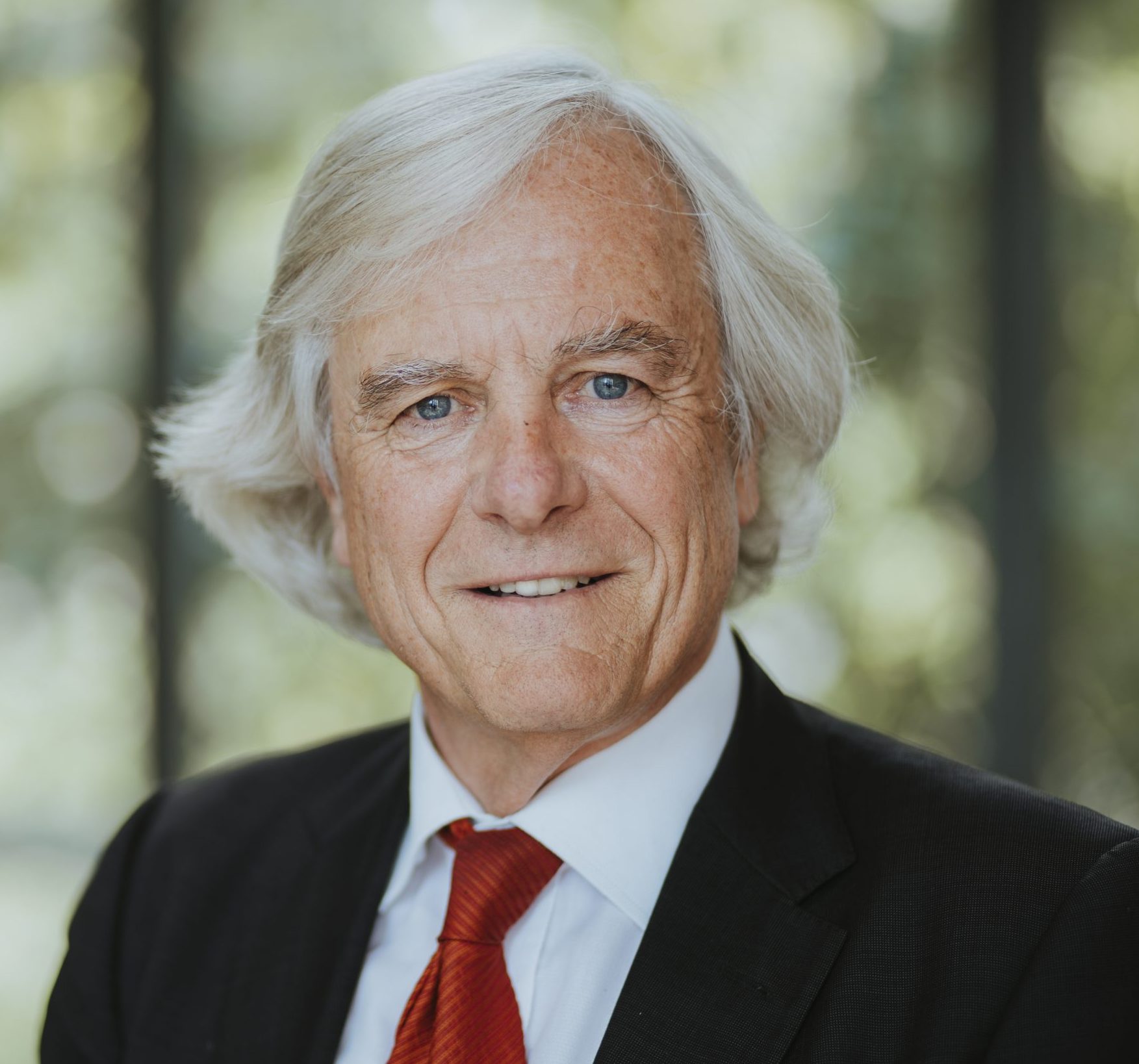
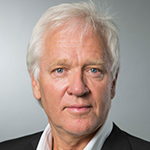
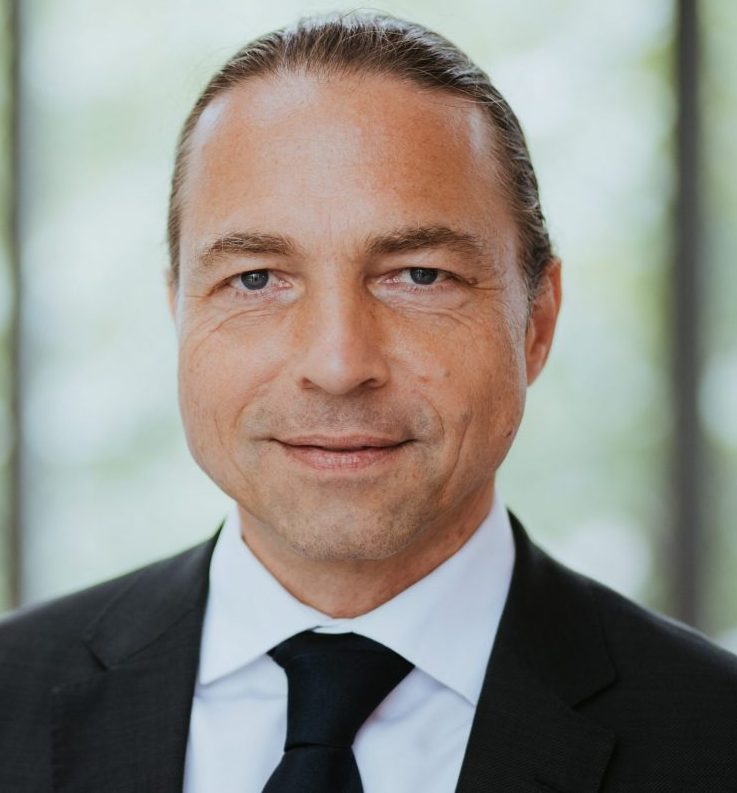
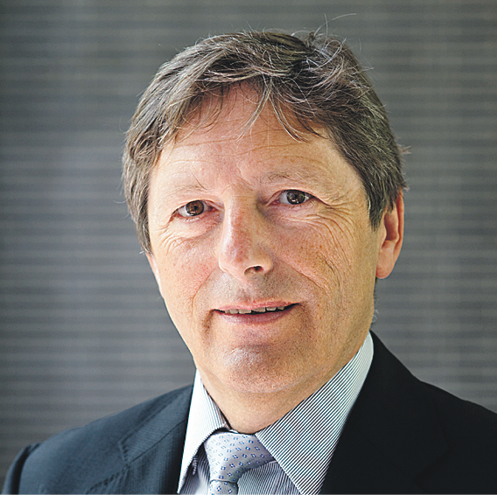
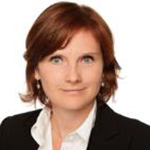

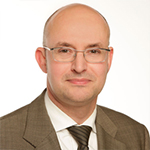
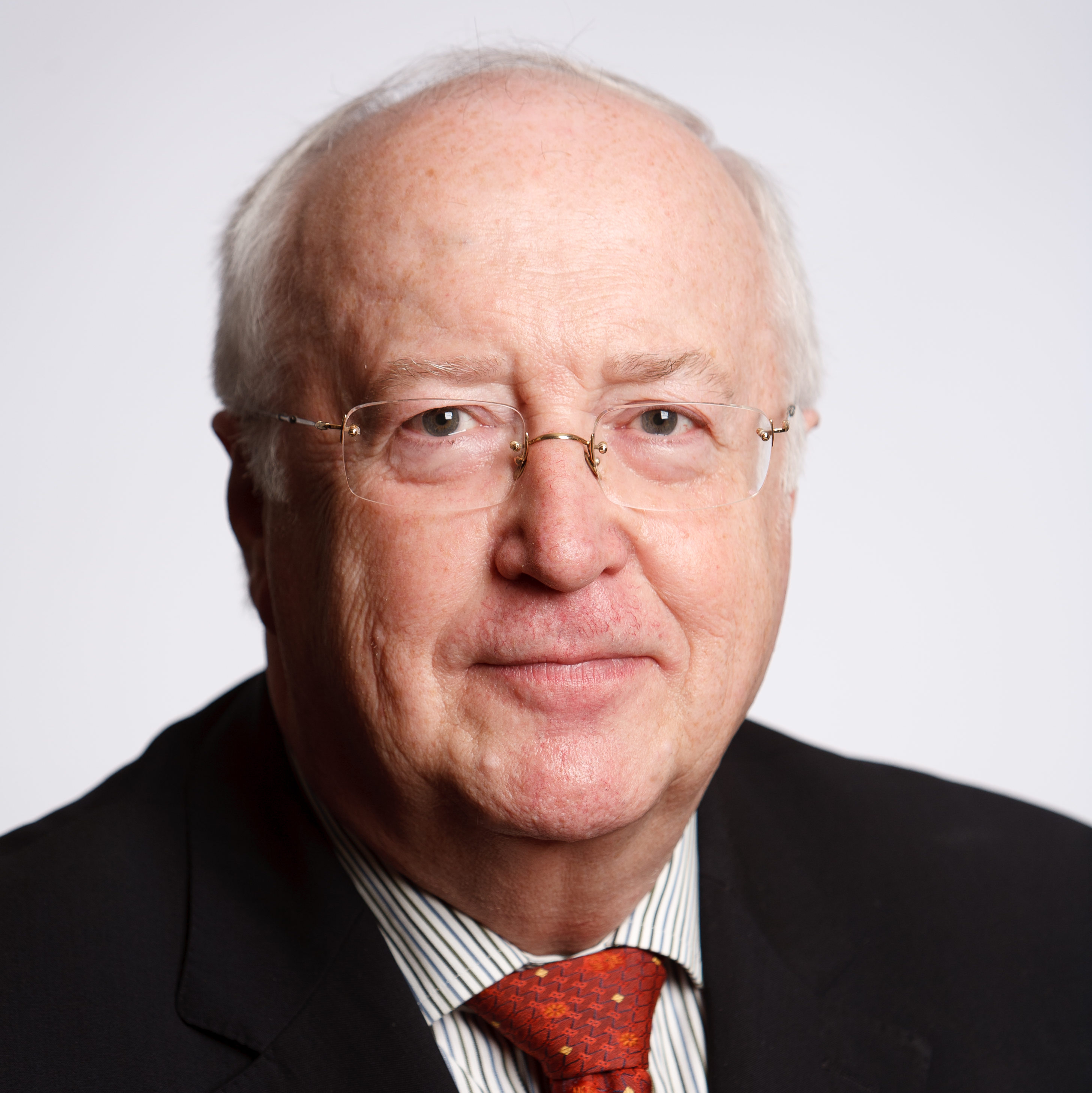
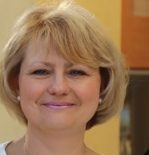

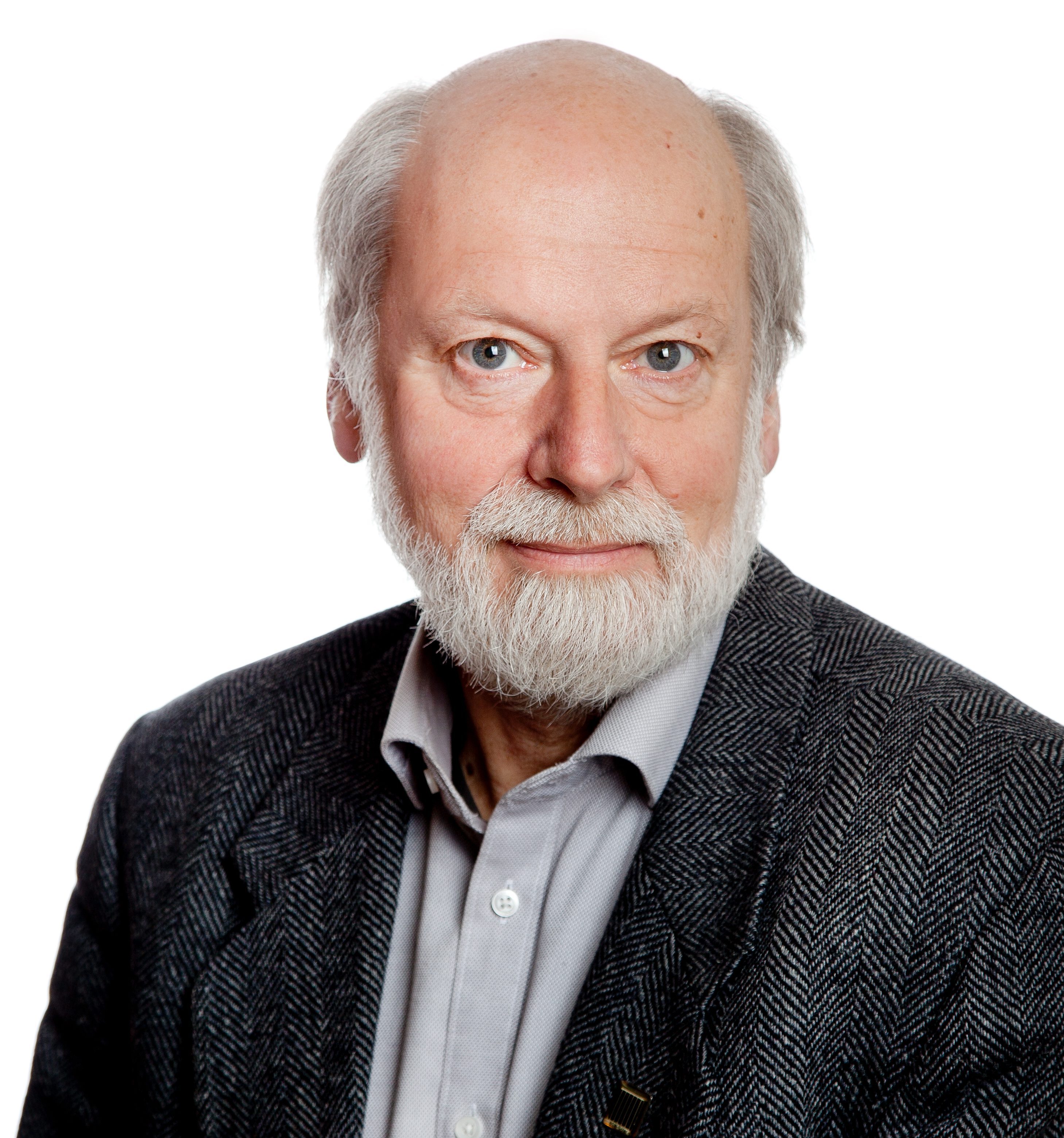



Professor for Technology and Innovation Management
Technische Universität Berlin& DTU, Copenhagen
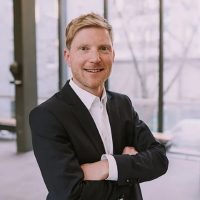
Professor and Head of the Production
and Operations Management research group
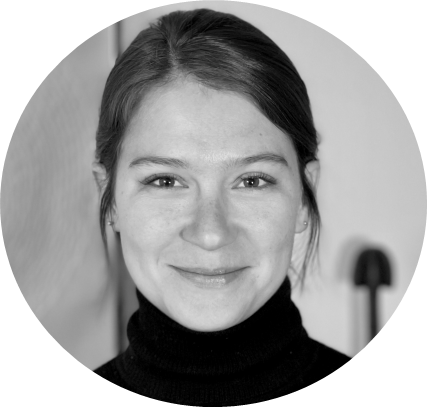
Postdoc at TIM research group
Technische Universität Berlin
Experts
Lecturers are full time professors of TU Berlin, expert professors from cooperating international universities, senior industry managers with a strong academic background, or senior executive staff of regulatory bodies.

Academic Director

Academic Program Manager
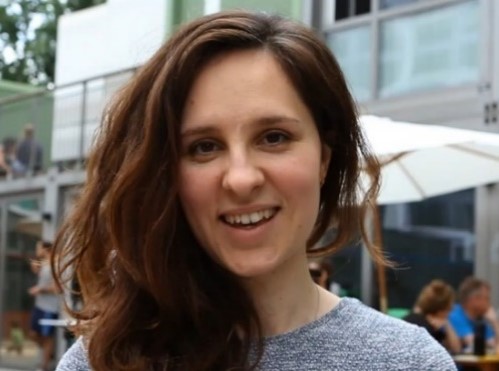
Founder of Circular Berlin

Owner of monomer
Zero-Waste Coaching for plastic-free life
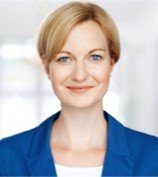
Expert for sustainability &
founder of the Berlin Social Academy
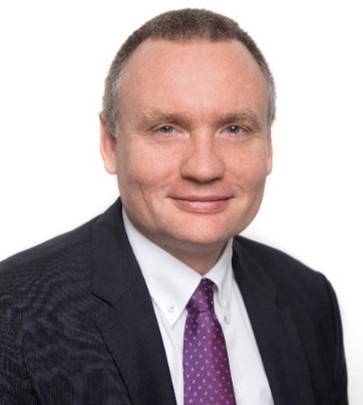
International Renewable Energy Agency (IRENA)

International Climate Initiative (IKI)
Federal Environment Agency, Germany (UBA)
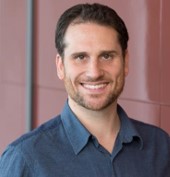
Institute for Advanced Sustainability Studies (IASS)


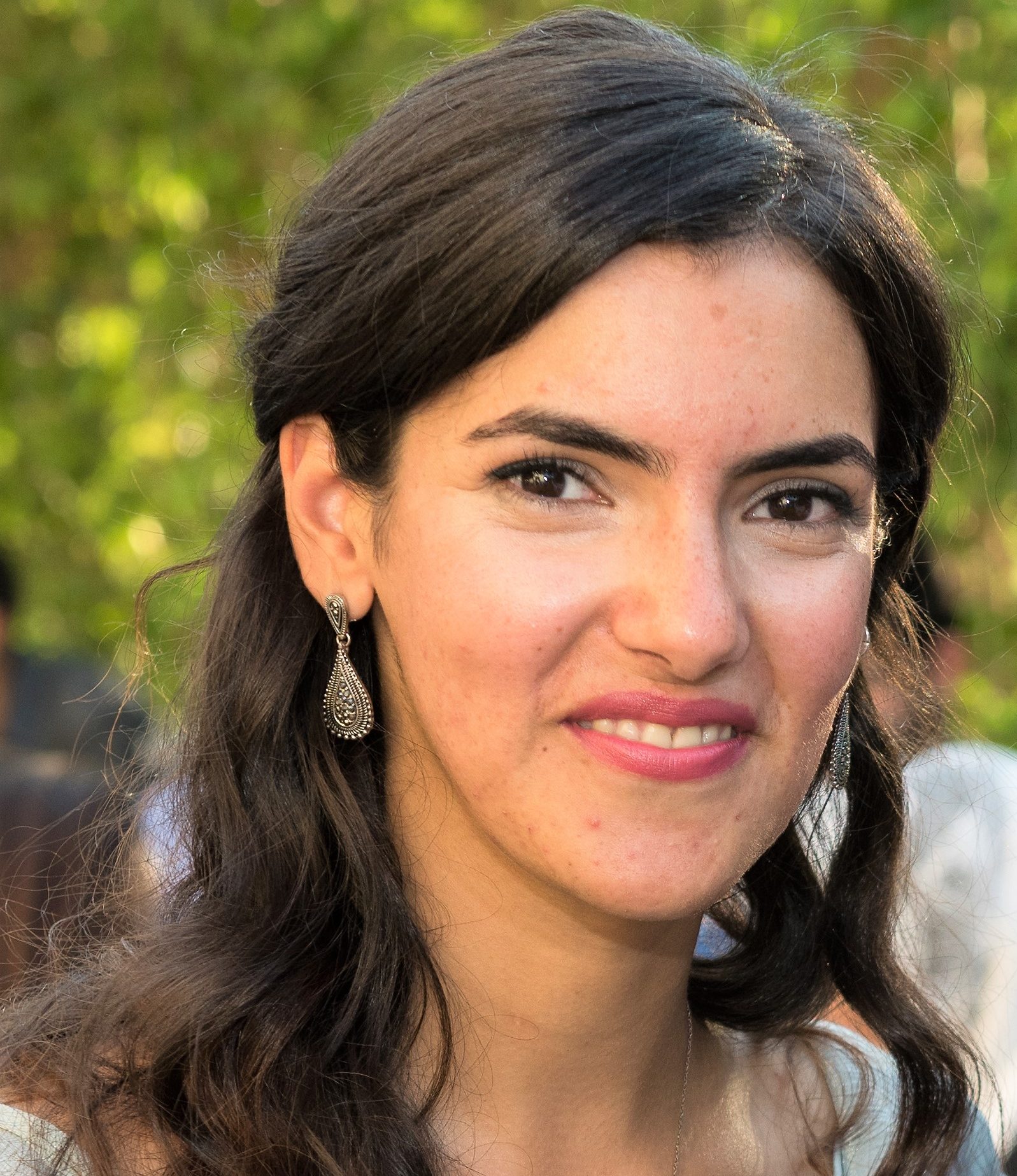

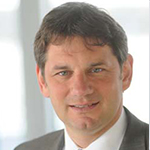

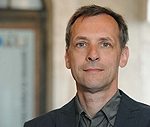



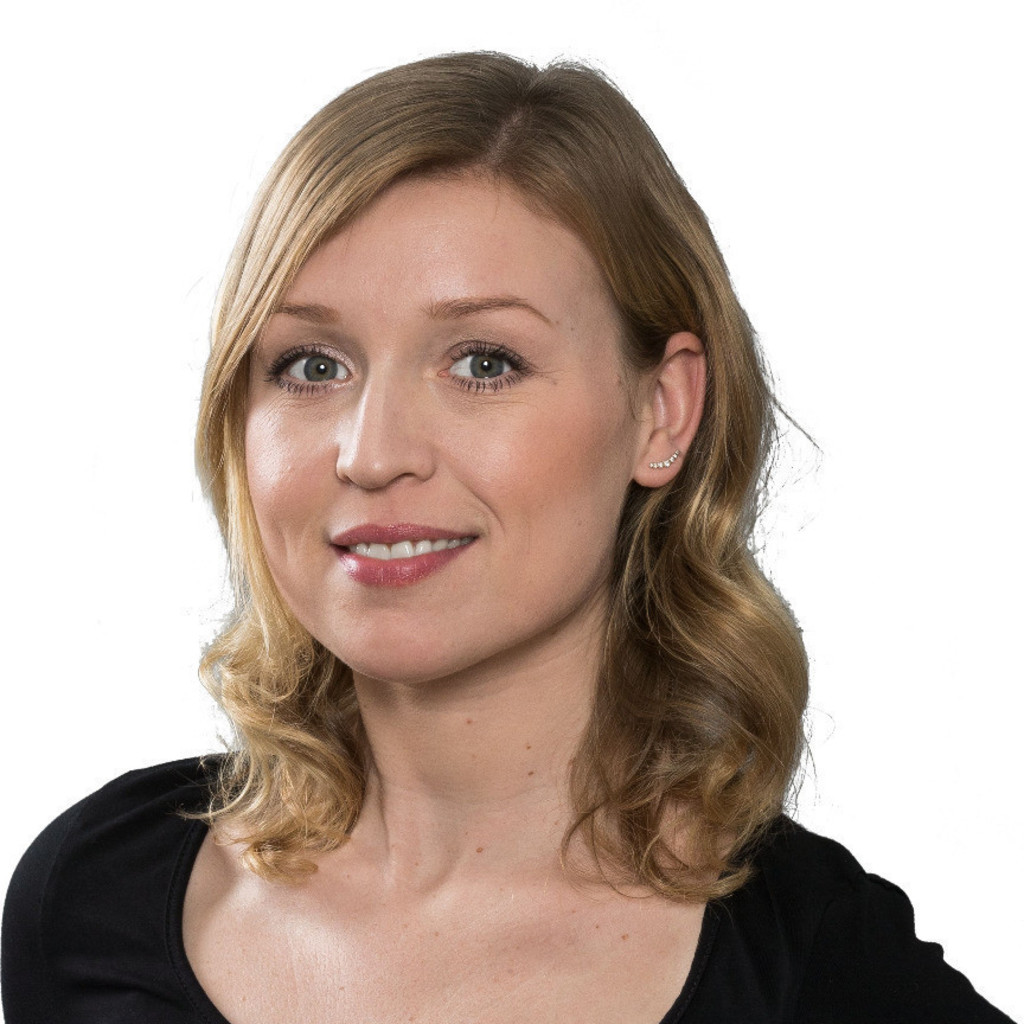

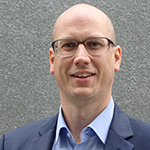

Oberbaudirektor Hamburg
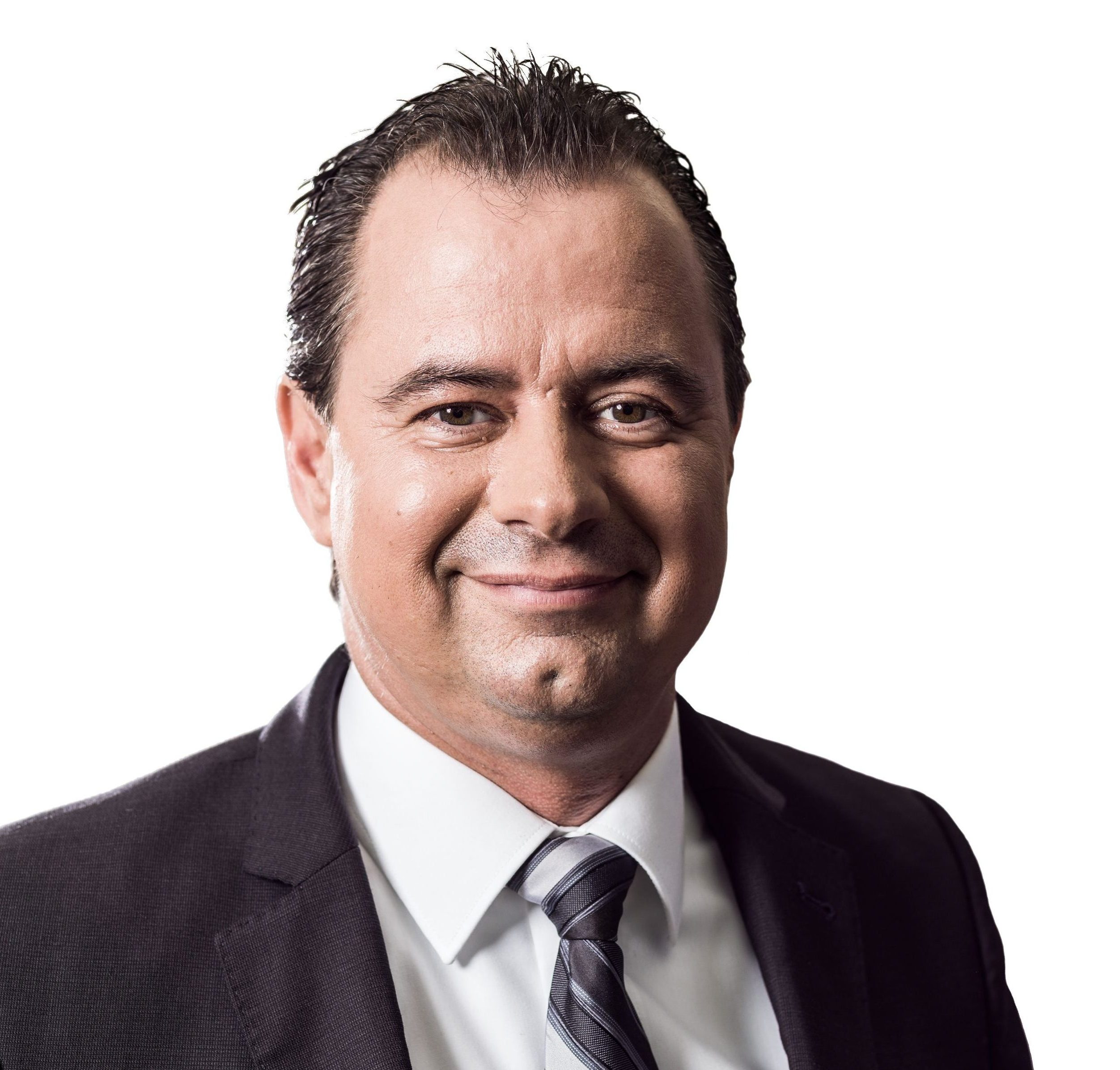


Federal Environment Agency, Germany (UBA)
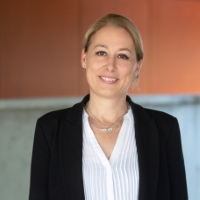
Chief Executive Officer
DGNB e.V.
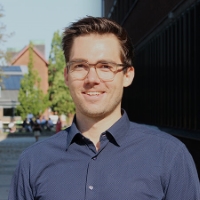
Associate Professor
Chalmers University of Technology
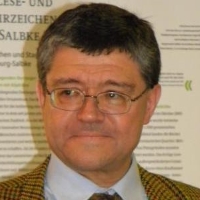
Honorary Professor
Technical University Budapest
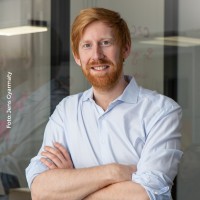
Co-Founder and Executive Director
Cradle to Cradle NGO

Team Leader BIM and Lecturer
Christoph Kohl Stadtplaner Architekten GmbH
DIA – Dessau Institute of Architecture – Bauhaus City, Dessau

Research Assistant & PhD Candidate
Technische Universität Berlin

Senior Expert for Sustainable Construction
German Energy Agency (dena)

German Association of Cities
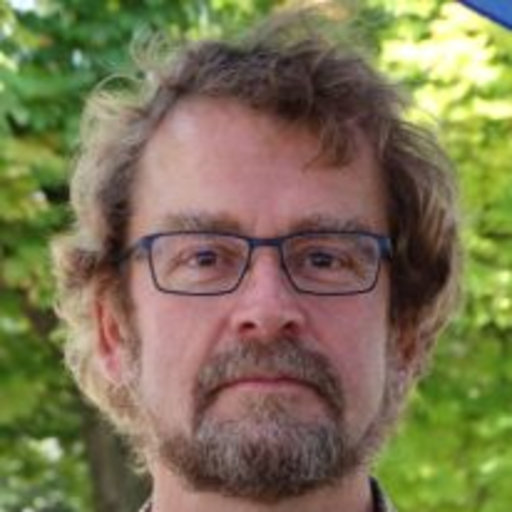
Senior Expert at the State Capital of Munich
Landeshauptstadt München

Habitat Unit – Department of international urbanism and design
Technische Universität Berlin
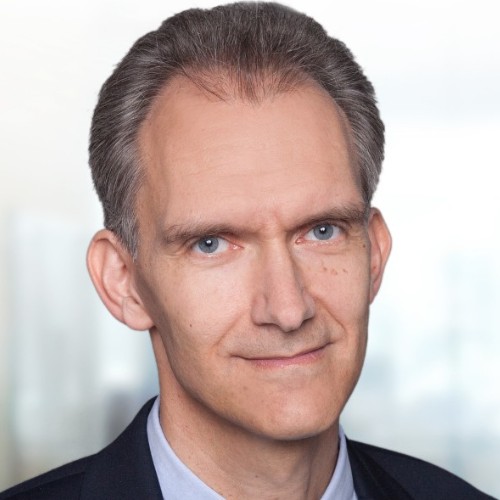
Director at Guidehouse
Buildings for Sustainability
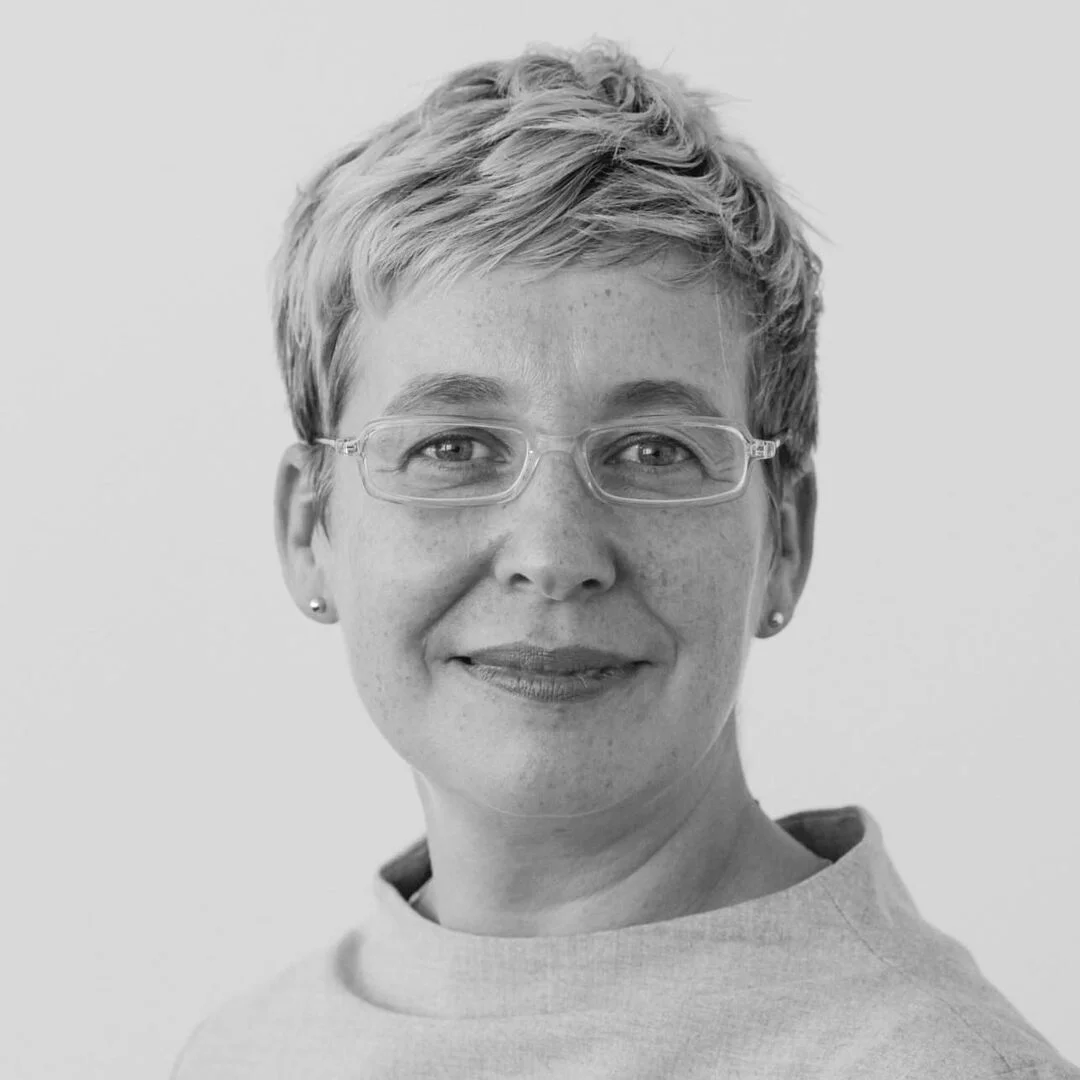
Urban development and settlement
Technische Universität Berlin
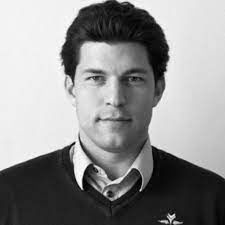
Sustainable Buildings Lead
Ramboll
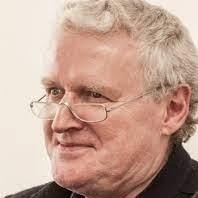
Co-chairman of the Land Policy Committee
German Academy for Urban Development and Regional Planning (DASL)
former city director
Advantages & Opportunities
The Master’s program in Building Sustainability is intended to give young engineers, architects, economists and planning scholars from 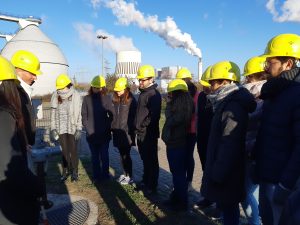 universities, enterprises, planning offices and public authorities the opportunity to gain interdisciplinary specialist knowledge. The program enhances their professional skills in the area of sustainable and energy-efficient building management while taking into account the urban context of buildings, thus preparing them for specific challenges resulting from urban development and climate change.
universities, enterprises, planning offices and public authorities the opportunity to gain interdisciplinary specialist knowledge. The program enhances their professional skills in the area of sustainable and energy-efficient building management while taking into account the urban context of buildings, thus preparing them for specific challenges resulting from urban development and climate change.
In order to transfer the theoretical knowledge to practice, a strong focus will be on interdisciplinary group projects. The program is therefore particularly suitable for young professionals who seek a leadership position in international companies. It requires at least one year of postgraduate working experience.
Learning and studying in small groups of up to 30 students allows for individual and excellent learning conditions.
Quality Assurance
Part of sustainability is quality management. Quality should not be left to chance, but be the result of a continuous improvement process. The TU Berlin changed its quality focus from the quality assurance of individual study programs to the evaluation of the university as a system. The TU Berlin has designed its quality assurance procedures in such a way that the participating actors can develop themselves in a responsible manner and in dialogue with each other. System accreditation leads to the accreditation of all study programs offered by a university.
“The subject of system accreditation is the internal quality assurance system of a university in the field of study and teaching. The structures and processes relevant for teaching and studies are examined to ensure that they achieve the achievement of the qualification objectives and the high quality of the courses, whereby the requirements of the Conference of Ministers of Education (KMK) are the European Standards and Guidelines for Quality Assurance in Higher Education (ESG). and the criteria of the Accreditation Council apply.
A positive system accreditation certifies the university that its quality assurance system in the field of study and teaching is suitable for ensuring the achievement of the qualification objectives and the quality standards of their degree programs. Degree programs that are set up according to the specifications of the accredited system or have already been subject to internal quality assurance according to the specifications of the accredited system are thus accredited.” (Own translation after German Accreditation Council of 20/02/2013.)
Currently, the final phase of the accreditation process has started and received the label of the system accreditation in the near future is possible. Please visit the webpage Central Evaluation and Accreditation Agency ZEvA for more information.
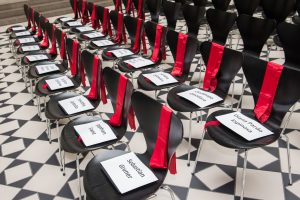
Tuition Fees
The tuition fee for the master’s program is 19,800 Euro (6,600 Euro per semester) plus the regular TU administration fees of currently 329.09 Euro per semester. The tuition fees cover all courses and materials and includes the semester ticket for the use of public transport in the Berlin city area (tariff zones ABC). Tuition fees and the in/exclusion of the semester public transportation ticket are subject to change. Please check the regular administration fees for the latest information.
Schneider Electric is offering scholarships for this program.
The following search engines can help you to find a suitable scholarship:
- International Education Financial Aid
- International Scholarships
- Scholarship Positions
- Deutscher Akademischer Austausch Dienst „FindingScholarships“
- Study Portal supported by the European Commission
- StipendienLotse des BMBF
- MyStipendium
- WeMakeScholars
- Begabtenförderungswerke
- Go Global MBA Scholarship
German Foundations:
- Hanns Seidel Foundation
- Heinrich Böll Foundation (information sheet)
- Heinrich J. Klein Foundation
- Friedrich Naumann Foundation
- Konrad Adenauer Foundation
- Rosa-Luxemburg Foundation
- Evangelischer Entwicklungsdienst (EED)
- Katholischer Akademischer Austauschdienst (KAAD)
- Peter Fuld Stiftung
- Stiftung Industrieforschung
- Studienstiftung des Abgeordnetenhauses von Berlin (information sheet)
Other National Scholarship Programs
Arab Region
- The website of Bibliotheka Alexandrina lists a number of scholarship providers in the countries of the Arab region.
- Bibliotheka Alexandrina
Australia
Canada
Colombia
Egypt
- Qalaa Holdings Scholarship Foundation
- Mohamed Rachid Charity Association
- Deutscher Akademischer Austausch Dienst (DAAD)
Germany
- Bildungskredit vom Bundesverwaltungsamt – BAföG Deutsche Bildung AG (information sheet) Festo-Bildungsfonds
- Studienstiftung des deutschen Volkes
Indonesia
Korea
Mexico
Russia
Team
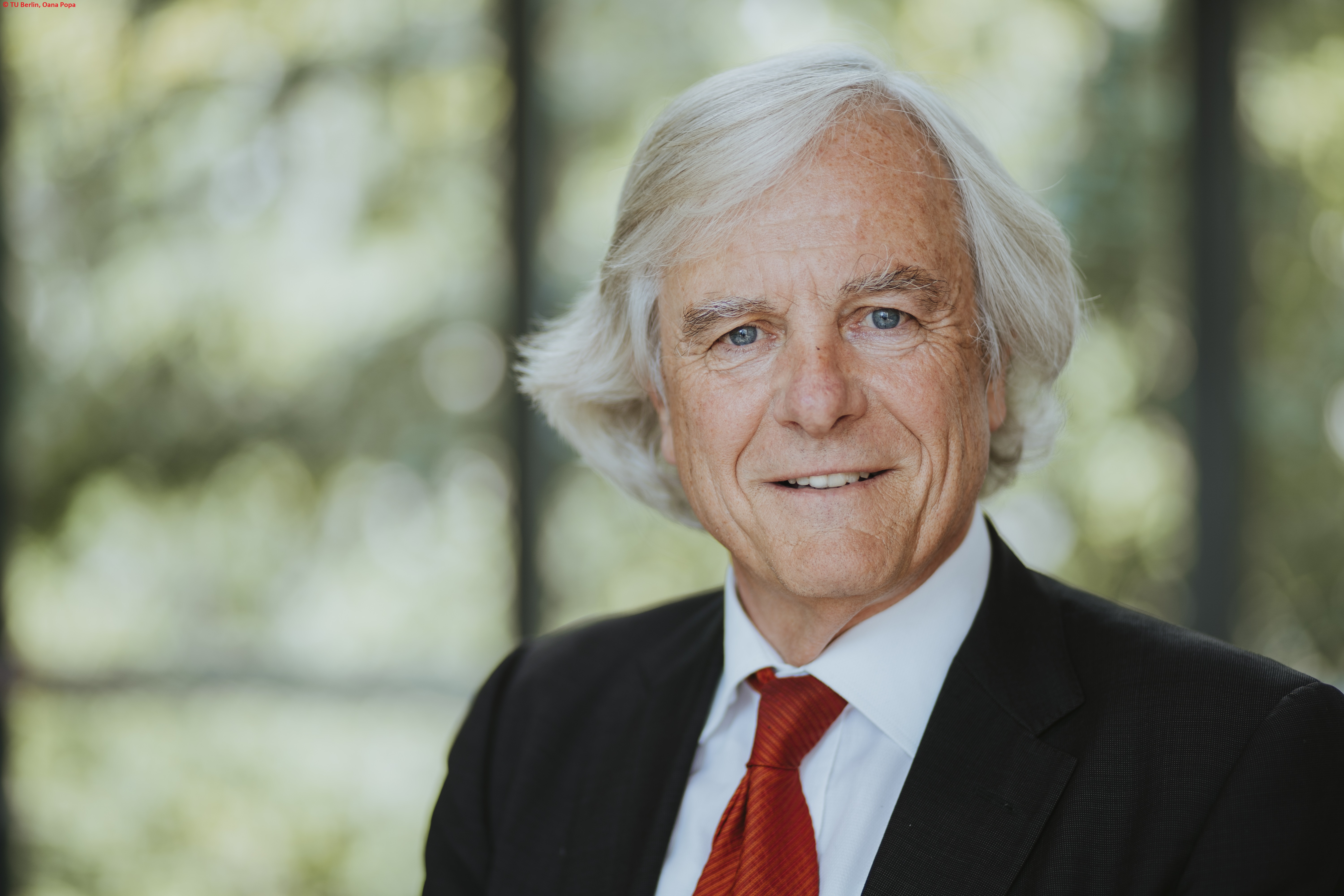
Academic Director

Academic Program Manager

Academic Program Manager
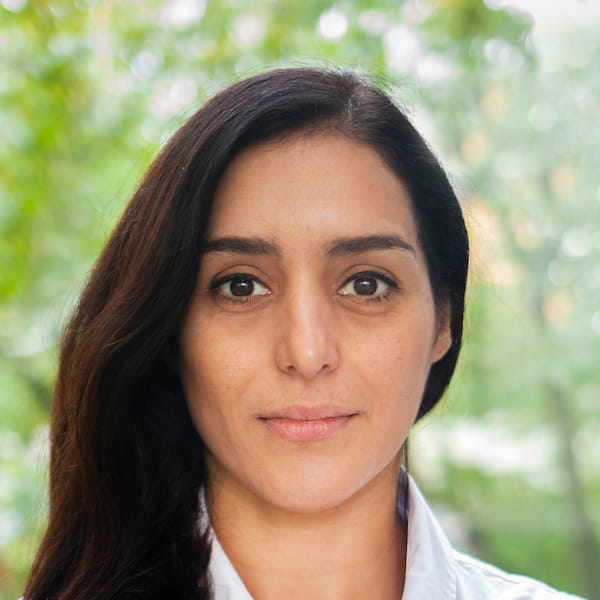
Academic Program Manager
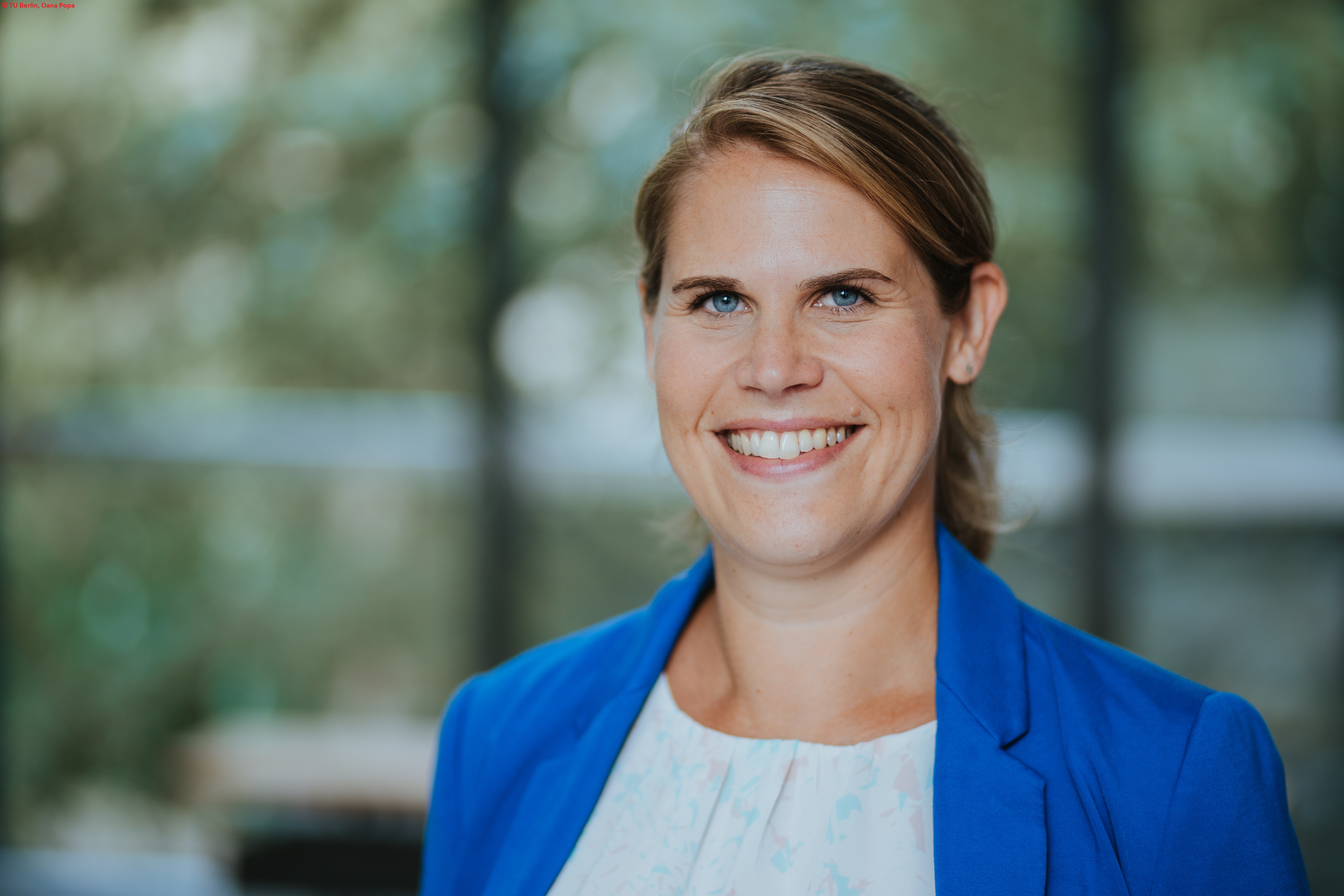
Administrative Coordinator

Student Assistant
Application
The regular application period will start from mid-January until March 31st of each year for a start in October of the same year.
Required application documents:
- Motivation letter in English (max. 1 page A4)
- Tabular Curriculum Vitae with information about educational and professional background
- University degree(s) recognized by German universities (at least 210 ECTS)
- Proof of work experience of at least one year (preferably in the relevant working areas of energy) after completion of studies
- Proof of knowledge of the English language at level B2 (or higher) of the Common European Framework of Reference for Languages (CEFR) – not required for high school graduation with English language
- Graduate Management Admission Test (GMAT) or Graduate Record Examination (GRE) – only if available
The number of students is limited to 30 per year. An admission committee will decide about selection based on results of former studies, the study profile, and further relevant qualifications that were attained outside the university.
For more information, please check The Application and Admission Regulations. (English translation, German version binding)
If you have any questions regarding the application procedure of Building Sustainability, please contact us: contact@master-in-energy.com
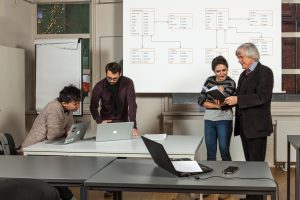

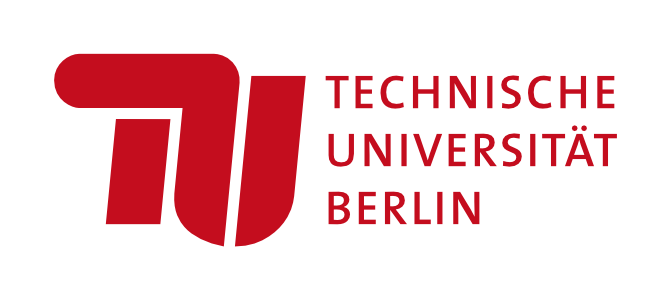
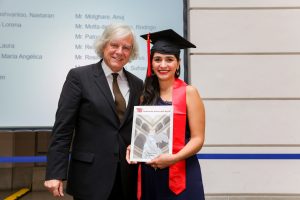

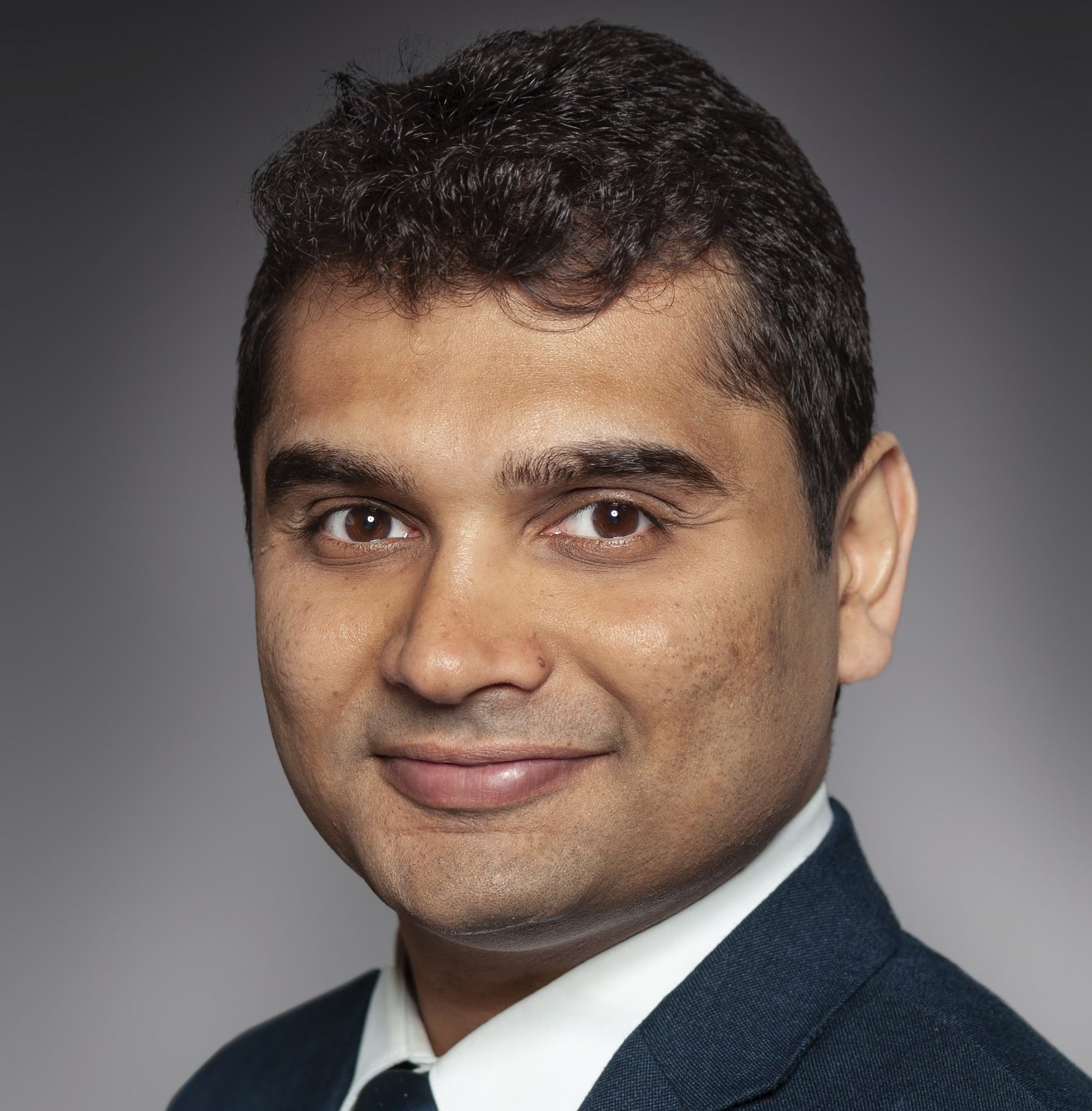 The master’s in building sustainability program at TU Berlin was a great opportunity to work closely with the Germany industry in an academic setting. I loved how the program was designed to let students work in projects with external industry partners. Combined with great professors and teaching staff, the overall learning package let students take control of their learning and dive deep into their interest areas. The program also provided me the flexibility to work at CBRE GmbH throughout the study duration. Having worked in the German real estate sector for a few years now and looking back at the program, it was a great stepping-stone in my career.
The master’s in building sustainability program at TU Berlin was a great opportunity to work closely with the Germany industry in an academic setting. I loved how the program was designed to let students work in projects with external industry partners. Combined with great professors and teaching staff, the overall learning package let students take control of their learning and dive deep into their interest areas. The program also provided me the flexibility to work at CBRE GmbH throughout the study duration. Having worked in the German real estate sector for a few years now and looking back at the program, it was a great stepping-stone in my career. I studied MBA building sustainability, which give me wide insights to the broad topic of energy transition in building sector from architecture to building facilities and real estate up to urban and regional planning. Having lecturers with different energy related backgrounds builds an ideal atmosphere for cross sectoral discussions in energy and sustainability fields in built environment. Locating in a dynamic environment of the Euref campus in one side, and high range of international students from the other side prepare a proper networking opportunity for the students. Personally innovation and technology management course supported me methodological in approaching my career goals in the area of innovation management and business development for the energy transition.
I studied MBA building sustainability, which give me wide insights to the broad topic of energy transition in building sector from architecture to building facilities and real estate up to urban and regional planning. Having lecturers with different energy related backgrounds builds an ideal atmosphere for cross sectoral discussions in energy and sustainability fields in built environment. Locating in a dynamic environment of the Euref campus in one side, and high range of international students from the other side prepare a proper networking opportunity for the students. Personally innovation and technology management course supported me methodological in approaching my career goals in the area of innovation management and business development for the energy transition.  The Building Sustainability program opened my eyes to the different aspects that comprise what we call sustainability. As an architect, I found the perfect added value I was looking for. The master’s degree gives you the tools to technically support construction projects from an economic, social and environmental point of view.
The Building Sustainability program opened my eyes to the different aspects that comprise what we call sustainability. As an architect, I found the perfect added value I was looking for. The master’s degree gives you the tools to technically support construction projects from an economic, social and environmental point of view. I have always been passionate about architecture and resource efficiency, how to help the world in the fight against climate change. There master in Building sustainability allowed me to learn from A-class experts, in what might be one the most innovative and inspiring campuses around the world, the EUREF campus.
I have always been passionate about architecture and resource efficiency, how to help the world in the fight against climate change. There master in Building sustainability allowed me to learn from A-class experts, in what might be one the most innovative and inspiring campuses around the world, the EUREF campus. The MBL in European and International Energy Law at the Euref Campus Berlin was a terrific opportunity to fully untangle the intricacies of the fast-paced changing energy sector.
The MBL in European and International Energy Law at the Euref Campus Berlin was a terrific opportunity to fully untangle the intricacies of the fast-paced changing energy sector.
 Prior to attending TU, I was working in an Oil & Gas Company in Ankara, Turkey. I decided to undertake MBL and choose to study here because of its unique curriculum with technical, economical and legal aspects of energy. The course offers not only theoretical knowledge but also practical information with its excursions. The lecturers have impressive academic and professional experiences. The classes are very interactive and relevant to what is happening globally in the energy industry.
Prior to attending TU, I was working in an Oil & Gas Company in Ankara, Turkey. I decided to undertake MBL and choose to study here because of its unique curriculum with technical, economical and legal aspects of energy. The course offers not only theoretical knowledge but also practical information with its excursions. The lecturers have impressive academic and professional experiences. The classes are very interactive and relevant to what is happening globally in the energy industry.
 The energy sector is a growing and complex area and the European and International Law MBL program at the TU Berlin strives to place energy law in a multidisciplinary and international context. Coming from a legal background, I have enjoyed developing my understanding of the economics of the energy sector. A further strength of the program is its practical focus with many of the lecturers being industry professionals and experts in their respective fields and we have had some interesting excursions to energy companies and energy-efficient power plants. There is a diverse mix of students from around the world with different perspectives on the challenges and opportunities that the energy and renewable sector face.
The energy sector is a growing and complex area and the European and International Law MBL program at the TU Berlin strives to place energy law in a multidisciplinary and international context. Coming from a legal background, I have enjoyed developing my understanding of the economics of the energy sector. A further strength of the program is its practical focus with many of the lecturers being industry professionals and experts in their respective fields and we have had some interesting excursions to energy companies and energy-efficient power plants. There is a diverse mix of students from around the world with different perspectives on the challenges and opportunities that the energy and renewable sector face.
 I chose the master course on European and International Energy Law offered by the Technische Universität Berlin because of its outstanding reputation, highly qualified lecturers, course preference compared to other universities, and proximity to my country, Spain.
I chose the master course on European and International Energy Law offered by the Technische Universität Berlin because of its outstanding reputation, highly qualified lecturers, course preference compared to other universities, and proximity to my country, Spain.
 Wonderful experience during the Energy Law Master program! Challenging topics and interesting lecturers. Meeting people from all over the world! Since February 2019 I am working as a Junior Expert at Bulgaria’s Energy and Water Regulatory Commission and putting into practice most of the experience from the MBL program on European and International Energy Law.
Wonderful experience during the Energy Law Master program! Challenging topics and interesting lecturers. Meeting people from all over the world! Since February 2019 I am working as a Junior Expert at Bulgaria’s Energy and Water Regulatory Commission and putting into practice most of the experience from the MBL program on European and International Energy Law. Before studying the Master in European and International Energy Law I was working in an Oil and Gas company and teaching Law in the same field at a University in Colombia. My motivation to do the Master was widening my expertise to other sources of energy as well as to study the midstream and the downstream market.
Before studying the Master in European and International Energy Law I was working in an Oil and Gas company and teaching Law in the same field at a University in Colombia. My motivation to do the Master was widening my expertise to other sources of energy as well as to study the midstream and the downstream market.
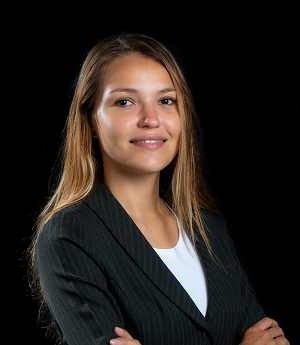 The program helped me gain a deeper understanding regarding the impact the energy transition has on climate change. The modules about the economy, regulatory and competition law allowed me to learn how energy markets behave under certain circumstances, which has helped me understand the different conditions Latin American countries have. This knowledge has been very useful in my role in EY’s Climate Change and Sustainability Services division. The visit to different facilities and the contact to other international students made the experience complete.
The program helped me gain a deeper understanding regarding the impact the energy transition has on climate change. The modules about the economy, regulatory and competition law allowed me to learn how energy markets behave under certain circumstances, which has helped me understand the different conditions Latin American countries have. This knowledge has been very useful in my role in EY’s Climate Change and Sustainability Services division. The visit to different facilities and the contact to other international students made the experience complete. The Master Program Energy Management at TU Berlin has been a truly fantastic 1 ½ year experience. The major strength of the MBA proposed at TU Berlin is the transverse knowledge proposed in the program. Technical issues, economical assessments, and regulatory aspects are all three core elements that are necessary to gain a deep understanding of energy topics in a globalized world and to build a valuable analysis for public and private energy projects. I particularly enjoyed studying these topics in an international class with professionals coming from all over the world with different backgrounds and points of view. Our differences challenged us on a daily basis and participated to enlarge our comprehension of the world. For all these reasons, I am pleased to enthusiastically recommend this program!
The Master Program Energy Management at TU Berlin has been a truly fantastic 1 ½ year experience. The major strength of the MBA proposed at TU Berlin is the transverse knowledge proposed in the program. Technical issues, economical assessments, and regulatory aspects are all three core elements that are necessary to gain a deep understanding of energy topics in a globalized world and to build a valuable analysis for public and private energy projects. I particularly enjoyed studying these topics in an international class with professionals coming from all over the world with different backgrounds and points of view. Our differences challenged us on a daily basis and participated to enlarge our comprehension of the world. For all these reasons, I am pleased to enthusiastically recommend this program! Now in this first semester of the Master Program in Energy Management at TU Berlin, I am thrilled and excited to meet and work with people from all around the world with diverse backgrounds in a very friendly and challenging environment. The campus truly has a buzz with many start-ups and established companies experimenting with the latest tech and ideas. The courses are great with excellent internationally recognized professors from academic as well as industrial backgrounds. I thoroughly enjoy the highly interactive sessions, and the supervisors put in a great effort at creating a relaxed environment for the students to get acquainted with all aspects of the subject. I am eagerly looking forward to the next semesters and can highly recommend this program!
Now in this first semester of the Master Program in Energy Management at TU Berlin, I am thrilled and excited to meet and work with people from all around the world with diverse backgrounds in a very friendly and challenging environment. The campus truly has a buzz with many start-ups and established companies experimenting with the latest tech and ideas. The courses are great with excellent internationally recognized professors from academic as well as industrial backgrounds. I thoroughly enjoy the highly interactive sessions, and the supervisors put in a great effort at creating a relaxed environment for the students to get acquainted with all aspects of the subject. I am eagerly looking forward to the next semesters and can highly recommend this program! The MBA program Energy Management is very well structured and thought through. Professors and lecturers come from various energy backgrounds and are highly involved academically, politically and economically into Germany´s Energiewende. I can apply my acquired knowledge directly at my workplace but also actively engage in the large and inspiring energy scene in Berlin and Germany. Excursions give us insights regarding relevant market players and opportunities to connect with future employers. It is particularly inspiring to study with such an international student crowd since we can share and critically discuss our diverse knowledge and experiences in the energy field from many different regions in the world.
The MBA program Energy Management is very well structured and thought through. Professors and lecturers come from various energy backgrounds and are highly involved academically, politically and economically into Germany´s Energiewende. I can apply my acquired knowledge directly at my workplace but also actively engage in the large and inspiring energy scene in Berlin and Germany. Excursions give us insights regarding relevant market players and opportunities to connect with future employers. It is particularly inspiring to study with such an international student crowd since we can share and critically discuss our diverse knowledge and experiences in the energy field from many different regions in the world.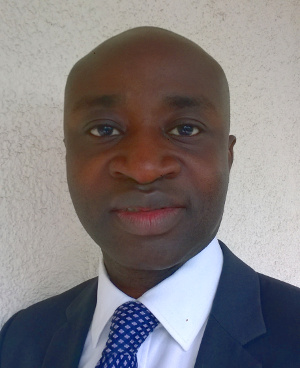 The broadness of its carefully selected content makes this program perfect for student’s career growth into global business leadership and policymaking in the energy sector. It is truly multicultural and provides additional opportunities through close collaboration with both transnational and startup energy companies. Technical University Berlin is a world-class scientific academic environment, allowing interdisciplinary initiatives, encouraging teamwork with experts’ supervision, offering frequent and relevant seminars and excursions to boost the practical experience. Students enjoy superb and individual support from both the academic and administrative staff.
The broadness of its carefully selected content makes this program perfect for student’s career growth into global business leadership and policymaking in the energy sector. It is truly multicultural and provides additional opportunities through close collaboration with both transnational and startup energy companies. Technical University Berlin is a world-class scientific academic environment, allowing interdisciplinary initiatives, encouraging teamwork with experts’ supervision, offering frequent and relevant seminars and excursions to boost the practical experience. Students enjoy superb and individual support from both the academic and administrative staff. “Wirklich!!! This is a unique MBA fit for preparing expertise and talents to address current issues relating to efficient and environmentally sustainable mobility provision. If you are looking to be part of the mobility transformation across the globe, then Berlin is the right place to be and the Energy Masters program on Sustainable Mobility Management will be a great platform to realising this goal.”
“Wirklich!!! This is a unique MBA fit for preparing expertise and talents to address current issues relating to efficient and environmentally sustainable mobility provision. If you are looking to be part of the mobility transformation across the globe, then Berlin is the right place to be and the Energy Masters program on Sustainable Mobility Management will be a great platform to realising this goal.”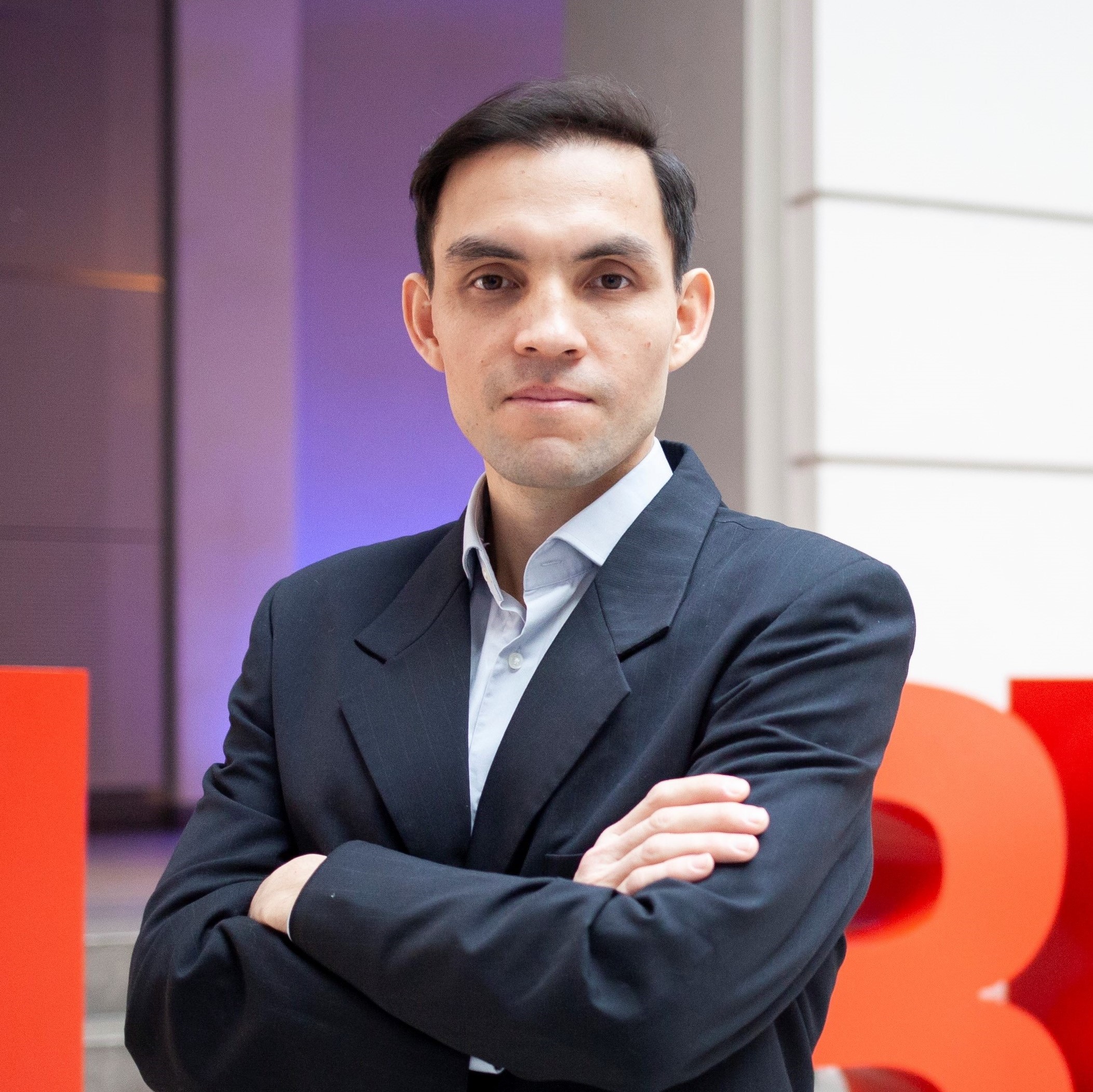

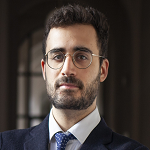 “Very helpful and committed professionals, who make the dense; callous and bureaucratic side of German culture quite a lot lighter.”
“Very helpful and committed professionals, who make the dense; callous and bureaucratic side of German culture quite a lot lighter.”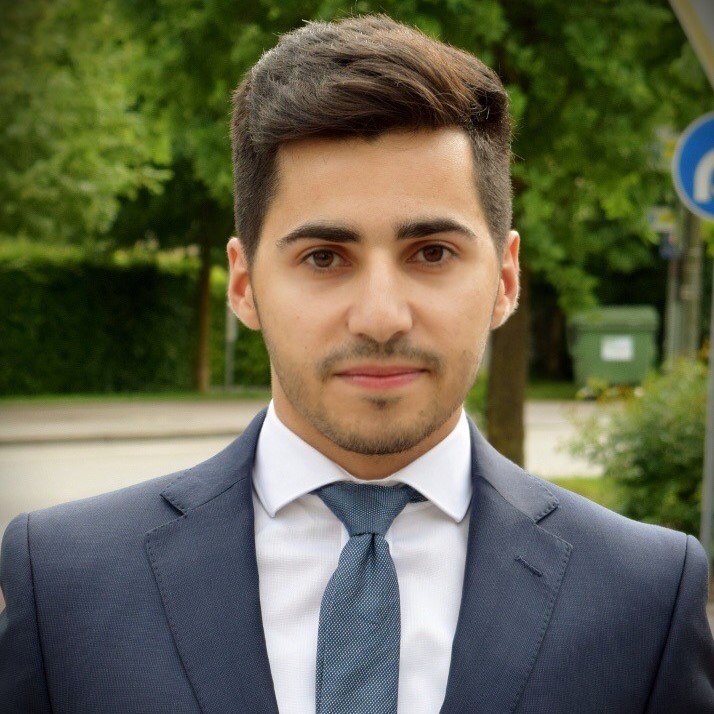 “Berlin is a city out of the ordinary ! The city vibes, diversity, and affordability has a lot to offer to students and caters for everybody’s taste. On top of that, the public transport network gets you everywhere, anytime !”
“Berlin is a city out of the ordinary ! The city vibes, diversity, and affordability has a lot to offer to students and caters for everybody’s taste. On top of that, the public transport network gets you everywhere, anytime !”
 “Studying at the TU EUREF campus open my mind up to thinking in an innovative and entrepreneurial way about sustainable mobility solutions. The most valuable part of the program was the opportunity to make connections with like-minded people with extremely diverse backgrounds, interests and ideas all working towards a common goal of achieving sustainable mobility.”
“Studying at the TU EUREF campus open my mind up to thinking in an innovative and entrepreneurial way about sustainable mobility solutions. The most valuable part of the program was the opportunity to make connections with like-minded people with extremely diverse backgrounds, interests and ideas all working towards a common goal of achieving sustainable mobility.” “This is a unique program blending business management and global technology trends in sustainable mobility domain. The course focuses on practical learning and there is also a student-led Mobility Club on the campus”
“This is a unique program blending business management and global technology trends in sustainable mobility domain. The course focuses on practical learning and there is also a student-led Mobility Club on the campus” “Berlin gathers all mobility problematics of main cities around the world but also is a big lab to observe and learn how the private and public sector manage the future of mobility looking for sustainability in all modes”
“Berlin gathers all mobility problematics of main cities around the world but also is a big lab to observe and learn how the private and public sector manage the future of mobility looking for sustainability in all modes” “EUREF in Berlin, Germany is a thrilling place for the future of mobility”
“EUREF in Berlin, Germany is a thrilling place for the future of mobility”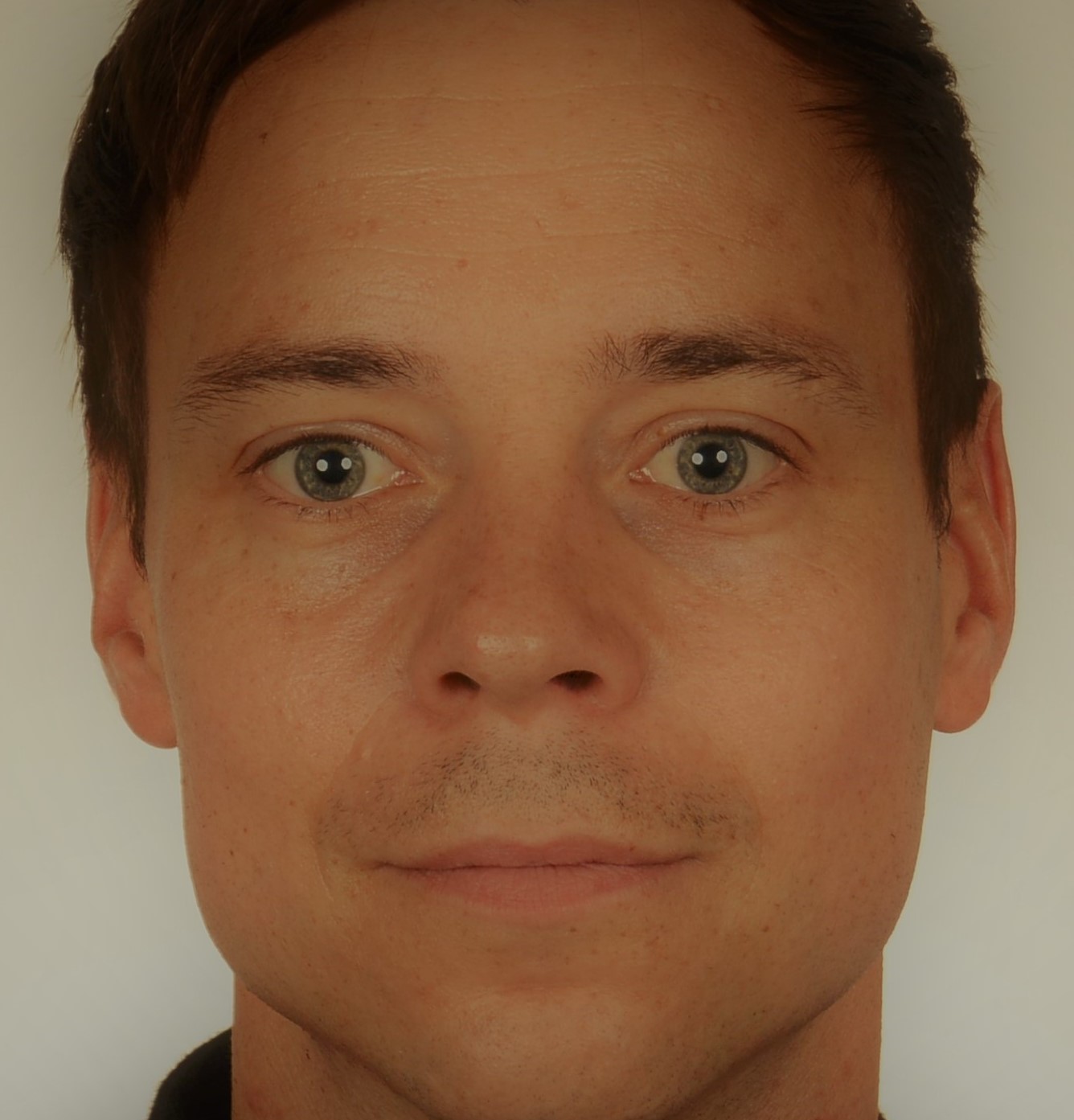 “The experiences from students from around the world helped me a lot to understand the challenges of the transition towards sustainable mobility in a global context.”
“The experiences from students from around the world helped me a lot to understand the challenges of the transition towards sustainable mobility in a global context.” “If you’re looking to understand the future of mobility and play a role in shaping the transition towards better city living, then this international program is what you’re looking for.”
“If you’re looking to understand the future of mobility and play a role in shaping the transition towards better city living, then this international program is what you’re looking for.” “A truly diverse student body – in background, nationality, and interests.”
“A truly diverse student body – in background, nationality, and interests.”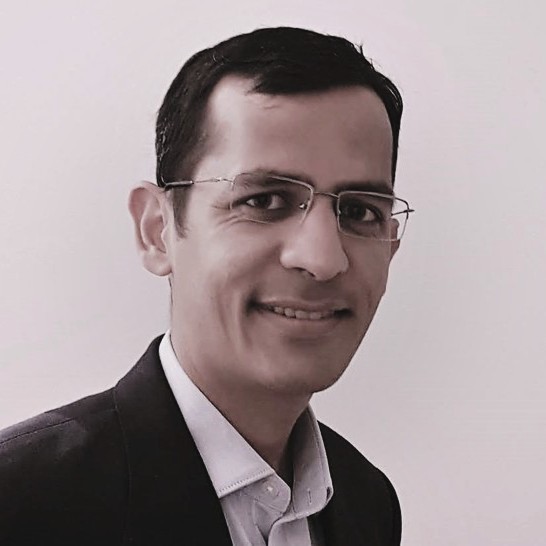 “The program puts contemporary mobility issues under spotlight through analysis of real life examples.”
“The program puts contemporary mobility issues under spotlight through analysis of real life examples.” Student Manual
Student Manual